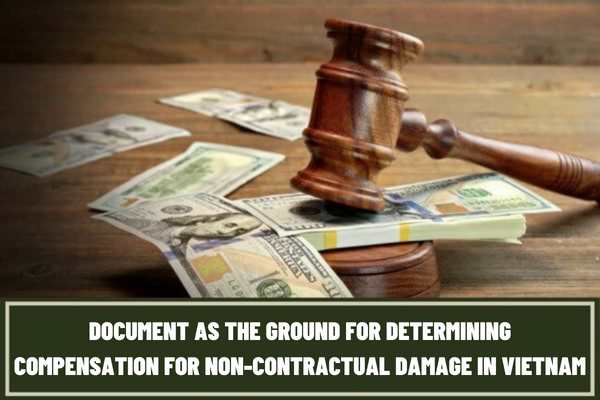Vietnam: How is the document as the ground for determining damage for settlement of compensation for non-contractual damage guided by the Supreme People's Procuracy?
What are the grounds giving rise to liability to compensate for damage in Vietnam?
Pursuant to Article 584 of the 2015 Civil Code, the grounds giving rise to liability to compensate for damage in Vietnam are as follows:
- A person intentionally or unintentionally harming the life, health, honor, dignity, reputation, property, or other legal rights or interests of a person, must compensate for such damage, unless otherwise prescribed in this Code or relevant laws.
- The person who causes damage shall be discharged from liability for compensation in case where the damage incurs due to force majeure events or at entire fault of the aggrieved person, unless otherwise agreed or otherwise prescribed by law.
- If a property causes damage, its owner or possessor must compensate for the damage, except for the damage prescribed in Clause 2 Article 584 of the 2015 Civil Code of Vietnam.

Vietnam: How is the document as the ground for determining damage for settlement of compensation for non-contractual damage guided by the Supreme People's Procuracy? (Image from the internet)
What are the principles of compensation for damage in Vietnam?
Pursuant to Article 585 of the 2015 Civil Code of Vietnam stipulating the principles of compensation for damage as follows:
- Actual damage must be compensated in full and promptly. Unless otherwise provided by law, parties may agree on the amount of compensation; on the form of compensation, which may be money, in kind or the performance of an act; lump sum payment or payment in instalments; and on the method of compensation.
- The compensation payable by a person having caused damage may be reduced if such damage was caused unintentionally and is very large in comparison to the financial positions of such person.
- If the amount of compensation determined becomes unrealistic, the aggrieved person, or the person having caused damage, has the right to request a court or another competent authority to change the amount of compensation.
- If the aggrieved party is partly his/her fault for causing the damage, that part of damage shall not be compensated.
- The party having rights and interests infringed shall not be compensated if such damage incurs due to his/her failure to adopt necessary measures to prevent the damage.
How does the Supreme People's Procuracy guide documents on the grounds for damage determination for settlement of non-contractual damages?
Pursuant to Question 10 of Official Dispatch 443/VKSTC-V9 in 2023, the instructions are as follows:
Trouble 1.
A accused B of causing injury to A, during the process of receiving and processing the information, the investigating agency did not solicit the assessment of the injury rate, but based on the Hospital's injury certificate and testimonies of witnesses, determined that B did not cause injury to A and made a decision not to prosecute a criminal case.
A initiates a civil case to request B to compensate for health damage. The court did not request an assessment of A's injury, but based on the investigation agency's conclusions to reject A's lawsuit claim.
Trouble 2.
A believes that B has leveled the ground to make water no outlet, leading to the consequences that perennial crops in A's garden are flooded, waterlogged and dead. A initiates a lawsuit to request B to compensate for the damage caused by the above act.
The court did not request a professional agency to conclude that the cause of A's crop died, but based on the text of the district's Department of Agriculture, answering "it is possible that the tree died due to waterlogging" to accept the claim. A's demand.
Question: Is it correct that the Court did not solicit expertise but based on the documents of the agencies in the above two cases to settle the case?
Answer:
(1) For the first case:
- The investigating agency has made a decision not to prosecute a criminal case because B has not committed an act of causing injury to A. This is an unproven circumstance (the circumstances have been identified in the decision of the competent state agency).
- If there is a basis to later determine that the investigating agency's decision not to institute criminal cases is wrong, this shall be determined as a new circumstance for protesting against reopening. Therefore, it is correct that the Court does not solicit expertise but relies on the conclusions of the investigating agency to reject A's petition.
(2) For the second case:
B's act of leveling the ground flooded and caused damage to A's crops. When settling, the Court only relied on the reference document of the Department of Agriculture with the content "there is a possibility of trees" death due to inundation" to accept A's request is not enough basis to determine the cause-and-effect relationship between the act of infringing upon the property and the actual damage occurring (this is one of the grounds arising liability for damages) so the Court accepted A's claim for compensation as incorrect.
LawNet